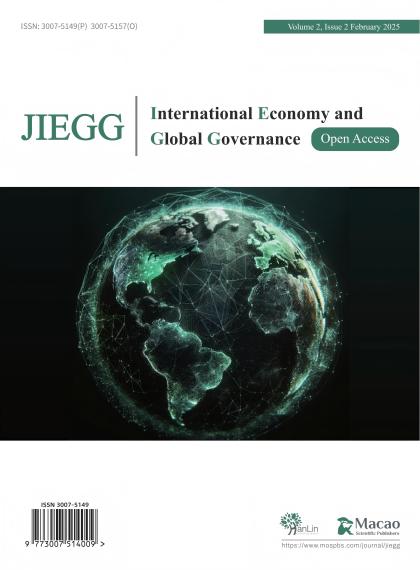-
UN Trade and Development, The Review of Maritime Transport 2012, November 2012, 5.
-
Aristotle. Politics, translated by Wu Shoupeng, Commercial Press, 1993 edition, p.23.Rose, C.M., (2020). Thinking about the Commons. The Commons Journal, 14(1), p.557-566
-
William Hunter. A Systematic and Historical Exposition of Roman Law in the Order of a Code, London: Sweet & Maxwell, 1876, 125.
-
Henry Summer Maine, Village-communities in the East and West, New York: Henry Holt and company, 1889, 85.
-
Donald McCloskey. (1991). The Prudent Peasant: New Findings on Open Fields, Journal of Economic History (51), 343–355.
-
Joan Thirsk. (1964) “The Common Fields,” Past and Present, (29) ,3-10.
-
Land Rights System in Germanic Law, Beijing Court Network: https://www.bj148.org/wh/bl/sy/202111/t20211126_1622874.html
-
Wang Jiange. Agro-pastoral Ecology and Traditional Mongolian Society, Chapter 8: Land Relations and Social Formation, http://economy.guoxue.com/?p=252
-
Zhao Wenhong. (2017) Introduction to the Basic Situation of the Commons System, 23.
-
Derek Wall. (2014) The Commons in History: Culture, Conflict, and Ecology, The MIT Press, 42.
-
Bryan E. Burke. (2001) Hardin Revisited: A Critical Look at Perception and the Logic of the Commons, Human Ecology, 29(4), 454.
-
Elinor Ostrom. Covenants with and without a Sword: Self-Governance Is Possible, American Political Science Review, 1992(2), 70.
-
Yang, L. (2010). “Dilemma of Grassland Governance in China: from ‘Tragedy of Commons’ to ‘Fencing Dilemma,” China Soft Science, (1): 13.
-
Hardin G. (1969) “The Tragedy of the Commons”, Science, (5364):1243-1248.
-
Brightman, R. A. (1987). Conservation and resource depletion: The case of the boreal forest Algonquians. In McCay, B., and Acheson, J. M. (eds.), The Question of the Commons: The Culture and Ecology of Communal Resources, University of Arizona Press, Tucson, 121-141.
-
Matto Mildenberger. “The Tragedy of the Tragedy of the Commons,” https://blogs.scientificamerican.com/voices/the-tragedy-of-the-tragedy-of-the-commons/
-
Penner, J. (2020). “The ‘Bundle of Rights’ Picture of Property,” in Property Rights: A Re-Examination, London: Oxford University Press, 233.
-
M Heller. “The tragedy of the anticommons: A concise introduction and lexicon,” The modern law review 76 (1), 8.
-
ibid, 16.
-
Yang XW. Pang L. Bi MX. (2016) “Research progress on the ‘tragedy of the anti-commons’ problem”, Economic Perspectives, (9): 105.
-
“馒头大战”平息 郑州撤销“馒头办”,https://www.chinanews.com.cn/2001-04-05/26/83454.html
-
Chen XG. (2005) “Application of the theories of ‘the tragedy of the commons’ and ‘the tragedy of the anti-commons’ in China,” (3): 74.
-
ibid, 77.
-
Yang Jie: “The End of the ‘Anti-Commons Tragedy’ ”, Economic Information Daily, December 23, 2010.
-
Shelby Ponton. (2024) “The Tragedy of the AI Anticommons,” 15 UC Law Science and Technology Journal (167), 175-176.
-
Biddle, Justin B. (2012) “Tragedy of the Anticommons? Intellectual Property and the Sharing of Scientific Information,” Philosophy of Science, (5), 82.
-
M Heller, “The tragedy”, 12.
-
See Lee Anne Fennell, (2010) “Common Interest Tragedies,” Northwestern University Law Review, (78) 2810.
-
Fu DX. (2019) “Tragedy of the Semicommons in Personal Information and Government Regulation,” Journal of Capital Normal University (Social Sciences Edition), (1): 60.
-
Li, W., Kerven, C. (2024) “Between commons and anticommons: a nested common-private interface framework,” Humanit Soc Sci Commun, (11), 509.
-
Yang XW (2019), “The evolution and prospects of semi-commons theory research,” Journal of Hubei University of Economics, (3): 12.
-
Heverly, Robert A. (2003) “The Information Semicommons.” Berkeley Technology Law Journal, (4): 1165.
-
Fu DX. (2019), “On the semi-commons attributes and hybrid governance paths of sharing platforms,” Economic Law Research, (1):275.
-
Heverly, Robert A. “The Information Semicommons.”, 1166.
-
Bertacchini, Enrico and De Mot, Jef and Depoorter, Ben, (2008) “Never Two Without Three: Commons, Anticommons and Semicommons,” University of Miami Legal Studies Research, (36):19.
-
Liu YW.(2011) “Practice of Rural Land System and Supply of Rural Public Goods——A Comparative Study of Three Local Cases,” The Journal of Shanghai Administration Institute, (5):80.
-
Zhang KZ. (2009) “Way of Public Governance: Comment on Elinor Ostrom’s Theory,” Cass Journal of Political Science, (6):86.
-
Grimmelmann, James, (2010) “The Internet is a Semicommons,” Fordham Law Review, (78): 2799
-
Stoker, G. (1998) “Governance as Theory: Five Propositions,” International Social Science Journal, (50):17-20.
-
Rose, Carol M., (1986) “The Comedy of the Commons: Commerce, Custom, and Inherently Public Property,” Faculty, Scholarship Series, 1828.
-
ibid.
-
Lu J., Jia XZ., (2021) “From ‘the tragedy of the commons’ to ‘the comedy of the commons’: Research on rural demolition in Yujiang, Jiangxi Province Economic Law Research,” China State Finance, (17): 56-57..
-
Pam Weintraub, “The miracle of the commons,” https://aeon.co/essays/the-tragedy-of-the-commons-is-a-false-and-dangerous-myth
-
Xiao PQ., (2018) “Substantive fairness: the realization logic of benign governance of shared property rights: a case study of public mountain governance in Tangwan Village, Anhui Province,” Study & Exploration, (8): 93.

